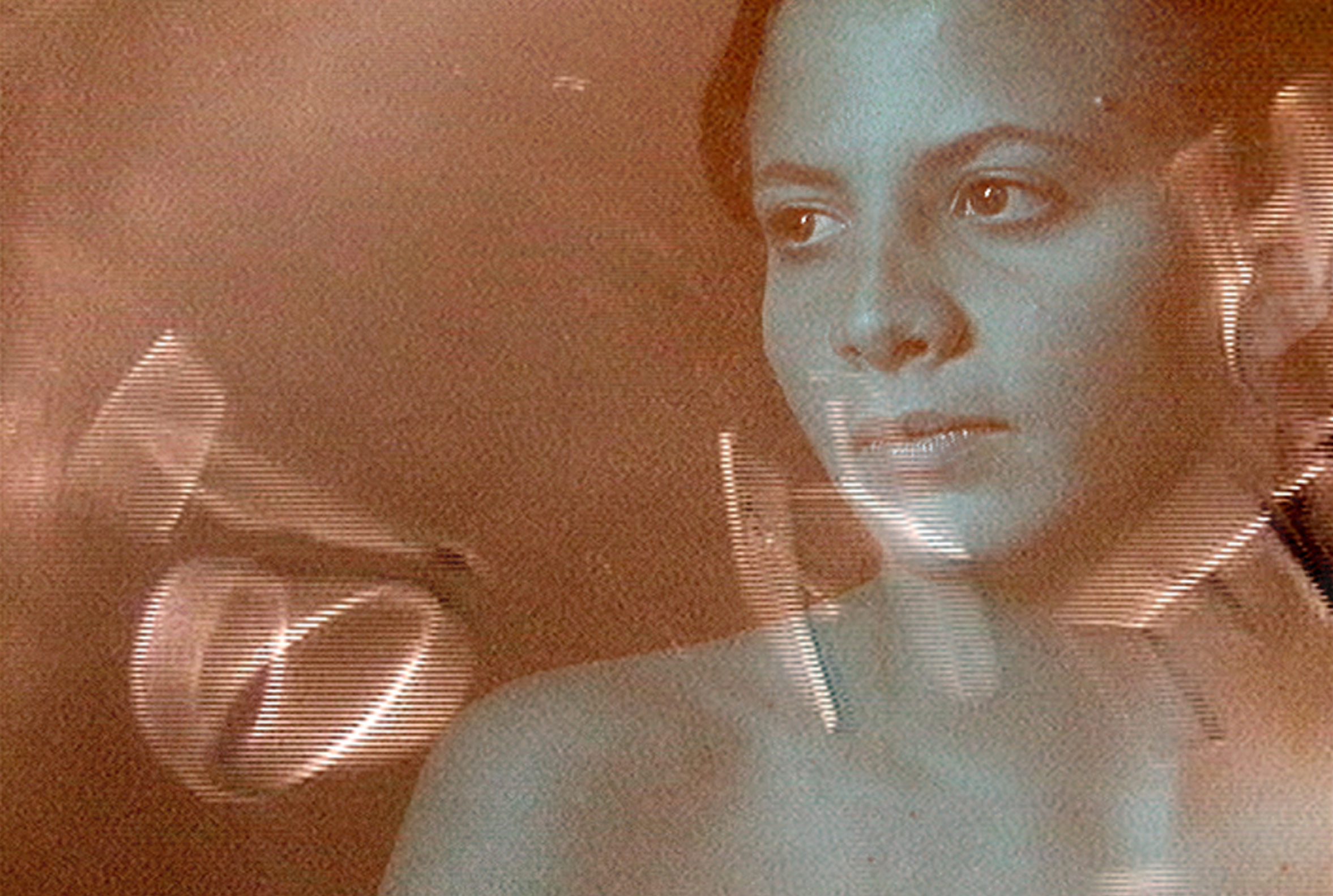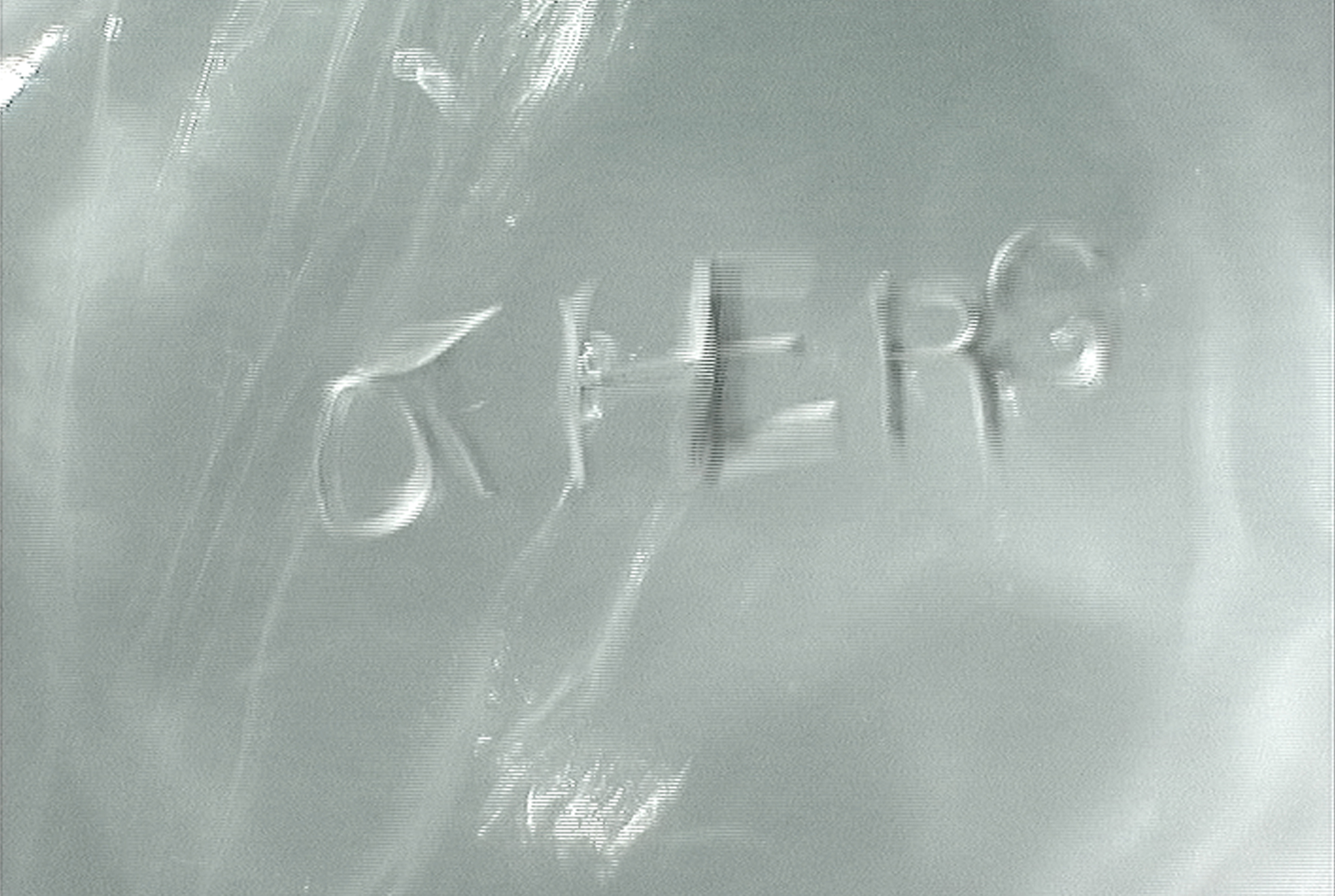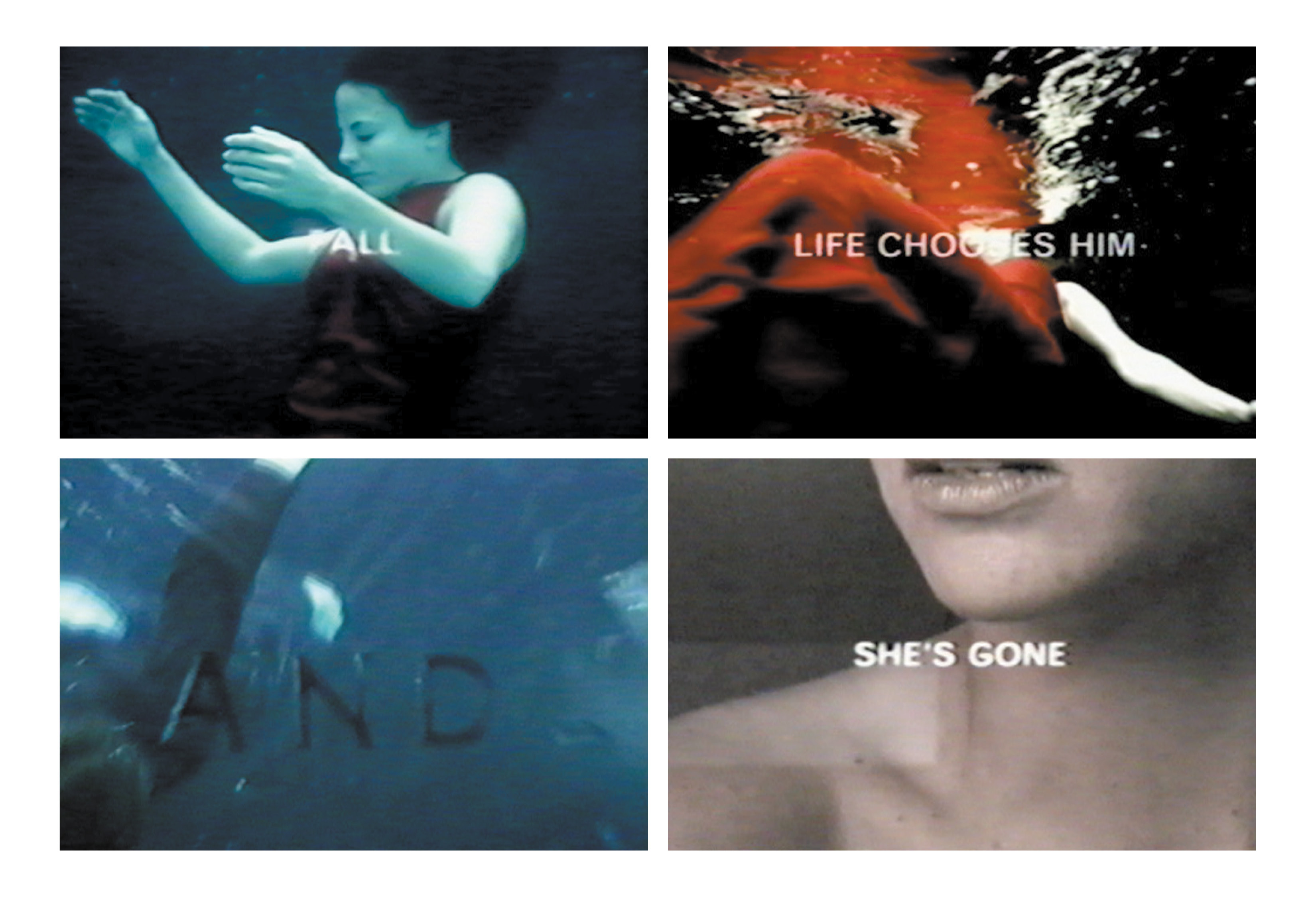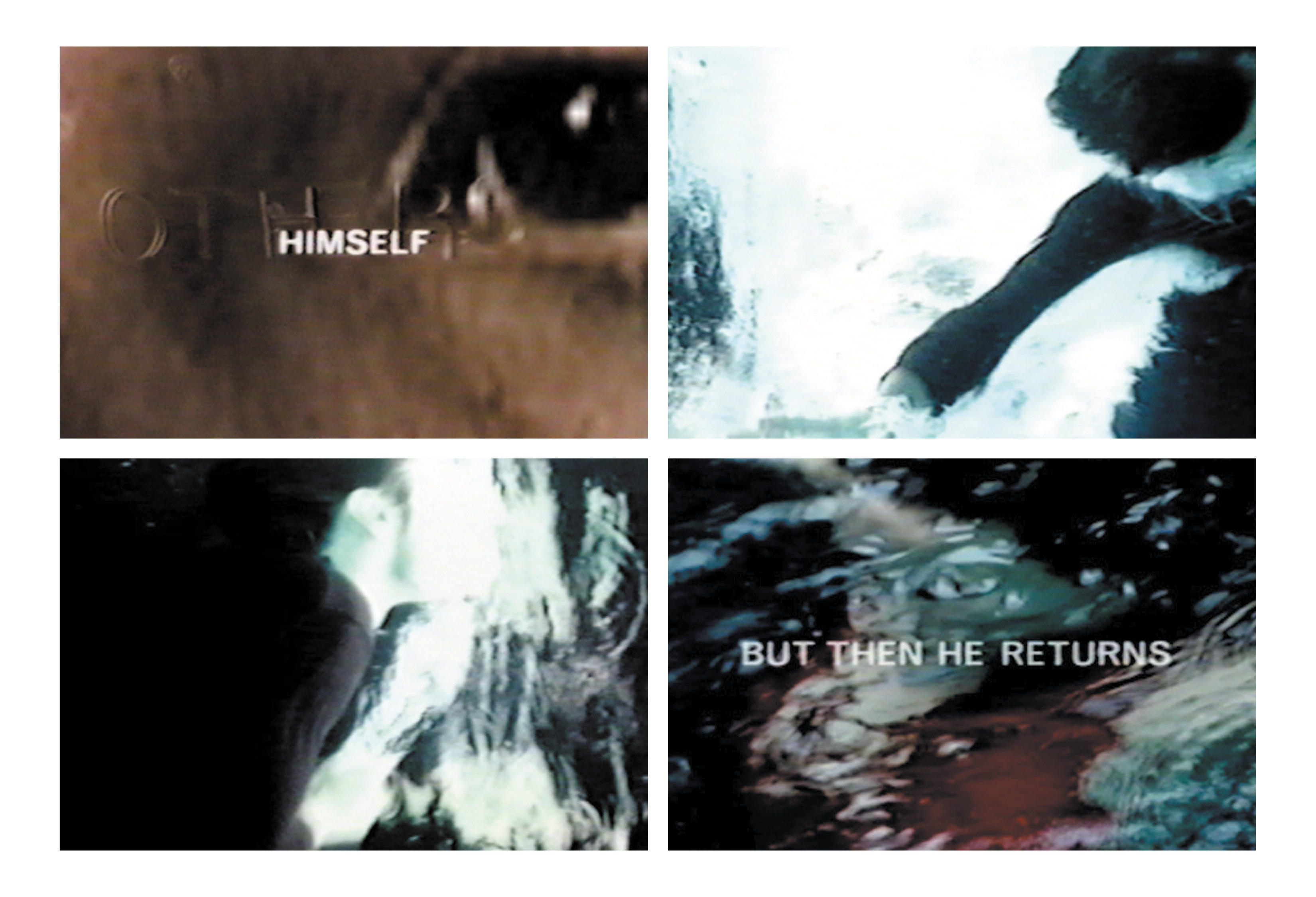ORPHEUS RE:VISITED
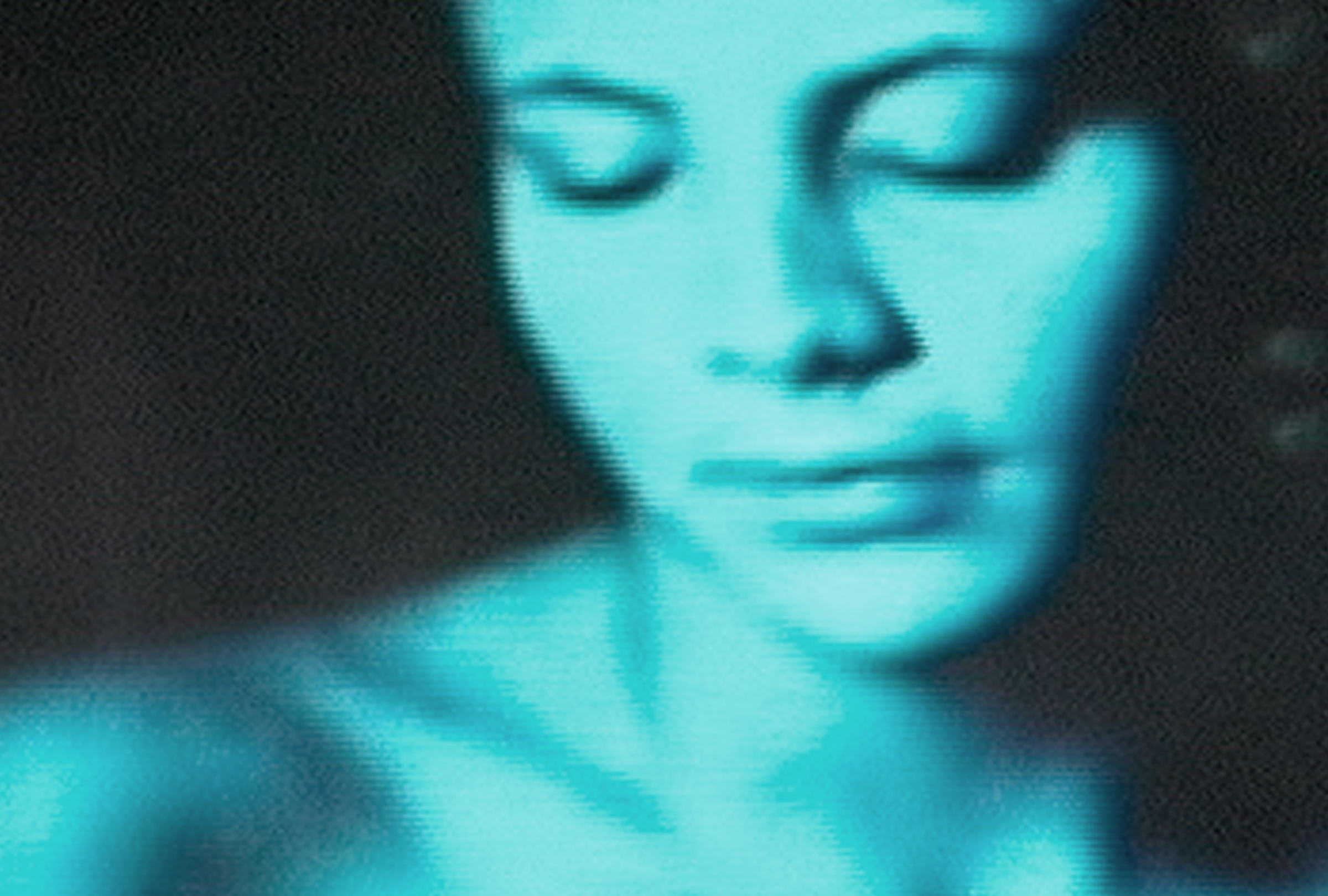
Text by journalist Holly Willis.
“I simply must have her,” says director Mike Figgis speaking with the utter charm that only a British accent affords, and the vehemence allowed only to film directors of note. “She’s extraordinary. A poet. I couldn’t stop listening to her.” The wild-haired Figgis, who has himself been known to wax poetic on the topic of moving images, was expounding on the talents of filmmaker Rebeca Méndez, whom he hoped to lure the set of his improv, four camera extravaganza Time Code 2000, now shooting in around West Hollywood. Méndez and Figgis had just shared a microphone on the “Future of Filmmaking” panel at the Los Angeles iteration of ResFest Digital Film Festival, and like many of us, Figgis was taken by the younger director’s poetic and philosophical musing on the role of images in contemporary culture.
Known variously as the “queen of plastics,” a design professor, and the writer/director of the short films “Orpheus Re:visited” and “The Malady of Death,” Méndez has enjoyed an eclectic career. In 1991 she became the design director at Pasadena’s Art Center College of Design, where she currently teaches digital filmmaking. She also runs her own design company called reasonsense® and has created projects as varied as elaborate and stunning posters for L.A.’s Getty Art Museum, multimedia installations using video, and numerous book and catalog projects, as well as several short films.
While in the RestFest panel, Méndez talked about the dire effects of collage on contemporary identity, and the sense of disconnection wrought by an aesthetic based on fragmentation and discontinuity. Her current mandate is to promote continuity and a kind of embodied sensing, based to some extent on the distinction made by French cultural theorist and fiction writer Helene Cixous. “I want to think about continuity and the voluptuous.” she says passionately, “and the ways in which a body is a sensing body, an animate organism.”
In a similar trajectory characterizes “Orpheus,” a collaboration with Rich Morris that recently screened at ResFest... The six minute short, which was shot with Sony MiniDV cameras and edited on a Mac using Premiere, AfterEffects, and Media 100, is indeed lovely both visually and in illustrating the dichotomy that so absorbes the filmmaker. The film also introduces a new filmmaking talent-this is the first film that Méndez has sent out into the world, and if ResFest is any indication, she will enjoy a strong critical response.
Orpheus Re:Visited is a short digital film created in collaboration with broadcast designer Rick Morris, and is the product of a digital film making class we taught for the new media graduate department at Art Center College of Design. The class project concept was to give the students a basic story line— in this case, the myth of Orpheus, and to structure the film in the manner of the surrealist game “The Exquisite Corpse.” My interpretation of the last third of the myth focuses in the oscillation between control and surrendering, and between fragmentation and continuity. Eurydice, Orpheus’ wife, on the threshold between life and death, remains continuous. She speaks of solitude in the words of Chilean poet Mario Benedetti. Orpheus’ challenge is to negotiate with his own powerful will. In surrendering, an involuntary will to live emerges.
“I simply must have her,” says director Mike Figgis speaking with the utter charm that only a British accent affords, and the vehemence allowed only to film directors of note. “She’s extraordinary. A poet. I couldn’t stop listening to her.” The wild-haired Figgis, who has himself been known to wax poetic on the topic of moving images, was expounding on the talents of filmmaker Rebeca Méndez, whom he hoped to lure the set of his improv, four camera extravaganza Time Code 2000, now shooting in around West Hollywood. Méndez and Figgis had just shared a microphone on the “Future of Filmmaking” panel at the Los Angeles iteration of ResFest Digital Film Festival, and like many of us, Figgis was taken by the younger director’s poetic and philosophical musing on the role of images in contemporary culture.
Known variously as the “queen of plastics,” a design professor, and the writer/director of the short films “Orpheus Re:visited” and “The Malady of Death,” Méndez has enjoyed an eclectic career. In 1991 she became the design director at Pasadena’s Art Center College of Design, where she currently teaches digital filmmaking. She also runs her own design company called reasonsense® and has created projects as varied as elaborate and stunning posters for L.A.’s Getty Art Museum, multimedia installations using video, and numerous book and catalog projects, as well as several short films.
While in the RestFest panel, Méndez talked about the dire effects of collage on contemporary identity, and the sense of disconnection wrought by an aesthetic based on fragmentation and discontinuity. Her current mandate is to promote continuity and a kind of embodied sensing, based to some extent on the distinction made by French cultural theorist and fiction writer Helene Cixous. “I want to think about continuity and the voluptuous.” she says passionately, “and the ways in which a body is a sensing body, an animate organism.”
In a similar trajectory characterizes “Orpheus,” a collaboration with Rich Morris that recently screened at ResFest... The six minute short, which was shot with Sony MiniDV cameras and edited on a Mac using Premiere, AfterEffects, and Media 100, is indeed lovely both visually and in illustrating the dichotomy that so absorbes the filmmaker. The film also introduces a new filmmaking talent-this is the first film that Méndez has sent out into the world, and if ResFest is any indication, she will enjoy a strong critical response.
Orpheus Re:Visited is a short digital film created in collaboration with broadcast designer Rick Morris, and is the product of a digital film making class we taught for the new media graduate department at Art Center College of Design. The class project concept was to give the students a basic story line— in this case, the myth of Orpheus, and to structure the film in the manner of the surrealist game “The Exquisite Corpse.” My interpretation of the last third of the myth focuses in the oscillation between control and surrendering, and between fragmentation and continuity. Eurydice, Orpheus’ wife, on the threshold between life and death, remains continuous. She speaks of solitude in the words of Chilean poet Mario Benedetti. Orpheus’ challenge is to negotiate with his own powerful will. In surrendering, an involuntary will to live emerges.
